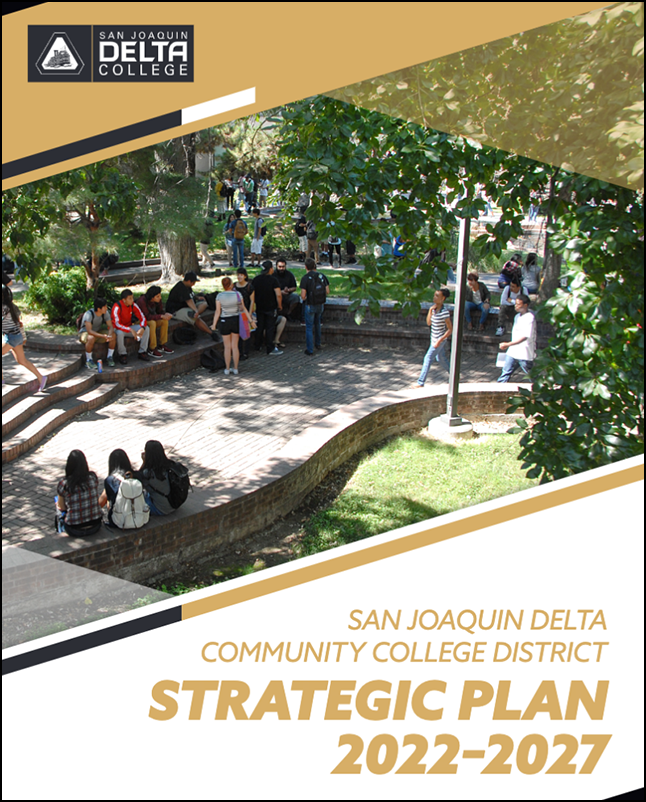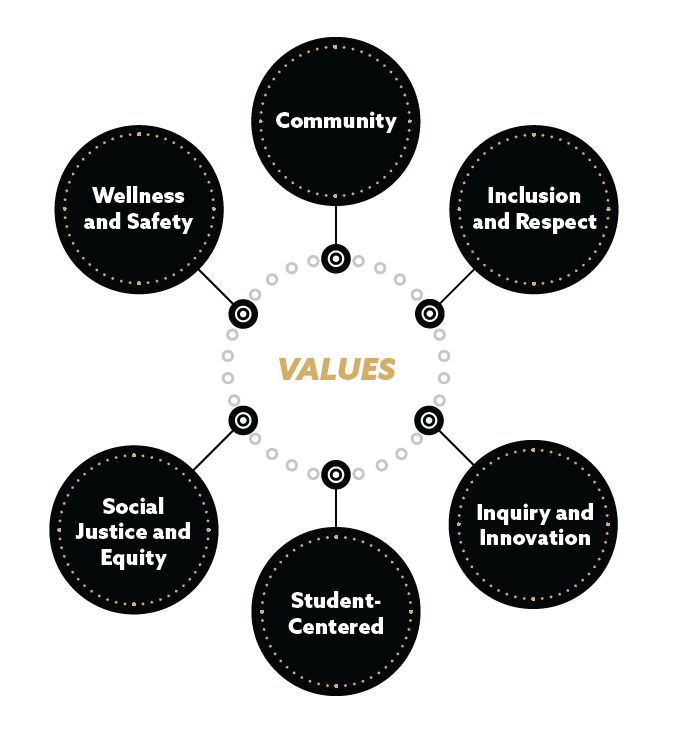Anti-racist: The practice of actively identifying and opposing racism. The goal of anti-racism is to actively change policies, behaviors, and beliefs that perpetuate racist ideas and actions.
Diversity: The wide variety of shared and different personal and group characteristics among human beings. The concept of diversity encompasses acceptance and respect. It means understanding that each individual is unique and recognizing our individual differences. These can be along the dimensions of race, ethnicity, gender, sexual orientation, socioeconomic status, age, physical abilities, religious beliefs, political beliefs, or other ideologies.
Equity: Equity is grounded in the principle of fairness. In higher education, equity refers to ensuring that each student receives what they need to be successful through the intentional design of the college experience.
Equity-Minded: The perspective or mode of thinking exhibited by practitioners who call attention to patterns of inequity in student outcomes. Taking personal and institutional responsibility for the success of students, and critically reassessing practices. Requires that practitioners are race-conscious and aware of the social and historical context of exclusionary practices in American Higher Education (https://cue.usc.edu/about/equity/equity-mindedness/).
Food Insecurity: The limited or uncertain availability of nutritionally adequate and safe food, or the ability to acquire such food in a socially acceptable manner. The most extreme form is often accompanied by physiological sensations of hunger.
Homelessness: The lack of a stable place to live. Students responded affirmatively to a question asking if they had been homeless or experience living conditions that are considered signs of homelessness in the past year.
Housing Insecurity: Includes a broad set of challenges such as the inability to pay rent or utilities or the need to move frequently. Students are classified as housing insecure if they answered affirmatively to experiencing at least one of the relevant survey items in the previous year.
Inclusion: Inclusion is seen as a universal human right. The aim of inclusion is to embrace all people irrespective of race, gender, disability, medical or other needs. It is about giving equal access and opportunities and getting rid of discrimination and intolerance (removal of barriers). It affects all aspects of public life.
Student-Centered: Prioritize the needs and interests of students in planning and decision-making. “Always design and decide with the student in mind” (California Community College Chancellor’s Office Vision for Success). Systematically examine policies and tools at all levels to better understand the student experience. Leaders need to forge greater connectedness across different programs and services so that they appear seamless to students. When glitches arise, colleges and policymakers must make every attempt to favor the students’ interests, helping students move forward toward their end goals, not holding them up.
Student-Ready: A student-ready college is one that strategically and holistically advances student success, and works tirelessly to educate all students for civic and economic participation in a global, interconnected society. At student-ready colleges, all services and activities – from admissions to the business office to the classroom, and even campus security – are intentionally designed to facilitate students’ progressive advancement toward college completion and post-college outcomes. Student-ready colleges are committed not only to student achievement but also to organizational learning and institutional improvement (Becoming a Student-Ready College, American Association of Colleges and Universities)








 Delta College is a beacon of hope for students, providing them with an innovative, student-ready, equity-minded college experience through high quality teaching, learning, and support services. We express these values in all that we do.
Delta College is a beacon of hope for students, providing them with an innovative, student-ready, equity-minded college experience through high quality teaching, learning, and support services. We express these values in all that we do.